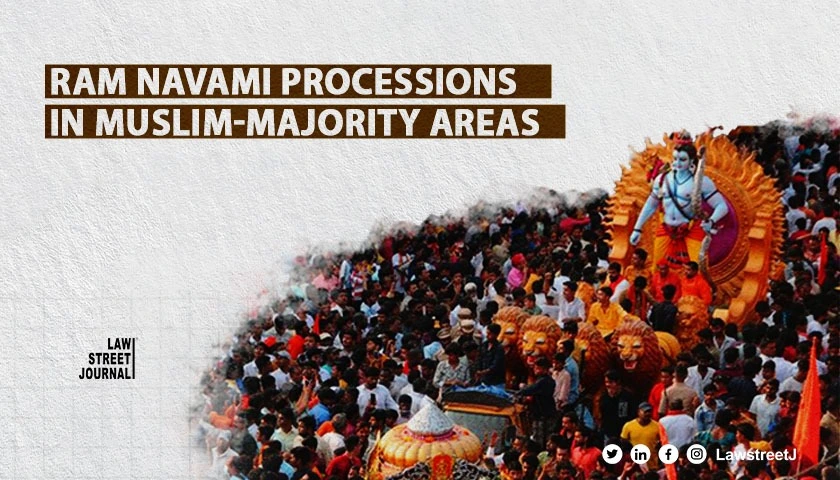ABSTRACT
Rape, more than the perspective of an act of sexual violence is the act of degenerating the society with a vision of not only outraging the modesty of a woman but also ousting the dignity of the physical, mental and psychological being of a woman. How the concept retains itself and has been able to create the void is by inculcating the belief that the society at large remains itself to be an association or culmination of the wrong deeds not only deviating from the basic theory of symbiosis but also by the belief of making everyone sustainable. The concept of marital rape and whether should be considered to be a part of the crimes under the ambit of Indian Penal Code, 1860 has been a matter of debate and is considered to be of utmost importance since the beginning of times. The paper looks into the history of marital rape around the world, particularly at its evolution. It analyses the various perspectives of marital as a concept. If laws against it are implemented, then the repercussions such laws may have over the traditional and customary practices in the country. Lastly, it studies the variation in the situations in the countries where marital rape has been criminalized and the position in India, both in ancient and contemporary times and how it can be put to effect in near future as a part of the law in India. The paper concludes by taking a stand as to how the law is a necessity however, needs to be developed carefully and with keeping consciousness of mind for not only the males or females, but setting a bench mark for the future generations.
I. INTRODUCTION
Rape is the unlawful activity and usually the unwanted, unconsented sexual intercourse under threat of injury against a person’s will or with a person. The concept of rape has been made a well-versed insinuation of the symbiotic relationship between the man and woman or man and man in the contemporary society. Rape as a crime, with the development over the period of time and specifications has been divided into various types that hold on to the most important aspect of how they have been hindering the society. Rape has initially been divided into two categories in the first convention that took place in Geneva. [1] War Rape and Payback Rape were the first two kinds of rape that were recognized during the times of the civil war and during the occupation of the Prussian Army on Poland. The elaboration was made with the rise in the concept of consent to be taken for intercourse and the prohibition to have a sexual intercourse without the consent of the woman. Recognition was thus given to the importance of rape at work place, child rape, acquaintance rape, gang rape, aggravated rape, incest rape and marital rape.
Marital Rape, as the term suggests, refers to the unconsented sexual intercourse where the victim is the spouse.Marital rape could be by the use of force or a battering rape or a sadistic/obsessive rape. It is a non-consensual act of violent perversion by a husband against the wife where she is physically and sexually abused. The consent which is given huge importance can be obtained with the coercion or even at the stature of toxicity of the spouse. The matter of concern regarding Marital Rape has been brought forward with the idea that the husband may misuse his position due to the established nature of the working of the conjugal rights provided in the religious books. The concept of marital rape was not meant for the deterrence but rather for the upliftment of women or spouses by providing a platform to save their dignity and to save them from inhumane behaviour of the society.
However, the question remains, is marital rape rather not an oxy-moron, because for it to be called into existence one has to question the basic essence of the marriage. In the case of Hindu faith, violate the Hindu culture of considering the marriage to be sacramental relation and of the belief and the faith of the Dharmashastra. [2] The concept of Dharmashastra interestingly mentions the importance of marriage which is the second phase in the life of a man known as Grihastha. However, the question which many ask and remains to be of utmost importance is the question of dignity of a woman. Lack of consent sought for a sexual intercourse by the husband whether is acceptable in terms of respecting the women’s dignity to attract the consent for the intercourse or not. This dilemma of consent while respecting the institution of marriage in the case of marital rape is what this paper attempts to address.
II. HISTORICAL OVERVIEW OF MARITAL RAPE
I. Marital Rape Around the World
The marital rape concept has been never recognized in history as there had been no formal recognition of a woman as a separate legal entity. As soon the man and the woman were married, they were recognized as a single entity of a man. Sexual violence in marriage has a history as long as the institution of marriage itself. But for the millennia, marital rape like the other forms of sexual assault was considered to be a private trouble not a public issue. Early rape laws defined the assault as a property crime against the husband or father whose wife or daughter had been defied. Under this framework marital rape was an oxymoron since a wife was legally a husband’s sexual property.
In 17th century rape laws from British common law to the Qing dynasty in China sanctioned definition of rape, considered it a violation of a woman’s chastity; again, not possible in the context of marriage. [3] Further, British jurist Lord Matthew Hale in 1736 addressed the issue of consent directly by declaring that “The husband cannot be guilty of a rape committed by himself upon his lawful wife, for by their mutual consent and contract the wife hath given up herself in this kind unto her husband, which she cannot retract.” [4] The blatant power of patriarchal accession had resulted into the belief that the woman was a part of the life of the husband and she was represented and defined by her husband but did not consider the importance of her independence even in the situations of the contingencies. The wife was objectified to be a property of the husband, so any hindrance to the property of the husband would be considered as theft or violence against the property of the husband.
During the time of Ottomans as well, the codification in the marital rape clause was never taken into account. However, Mehmed the Conqueror issued one of the decrees during his regime to respect women and treat them like their own mother and not consider them as an object and have to be given due respect. The Emperor also commanded that the Prophet’s aim is to spread love and respect and women were to be treated as the Queen and violating her soul could not be less than blasphemy. The followers therefore had to take the steps to initiate and prevent the harming of their soul. The King also condemned the lack of participation of women in culture and arts and sought for their total participation. He commanded the men should treat their wives with respect and not force them to slavery of any manner. He rather emphasised on women empowerment and lest the men harm their wives, they shall be punished subject to torture. [5]
However, the Ottomans are guilty of forcefully converting the Armenian women who lost in the Armenian-Turkish war, to Islam and had forceful sexual inter course without recognising or giving them any human rights.[6] The court of the Mehmed could never successfully implement the concept of rape or violation of the soul of women as it could never be proven. The Ottomans on the other hand, made a complete turn in terms of laws and the regulations which became rigid and stricter for women. For example, this resulted in the introduction of the Purdah system and increased the slavery of women. The laws would now treat women as objects and also completely renounced anything called rape by the man on his wife by not recognising the women as a separate legal entity.
On the similar lines, the English common law also focussed more on prevention of the possible power to women as to how the politicians of the time at the house of commons had reiterated “ The women of the society have to be given due respect but also needs to be made sure that they are not given powers to misuse and maintain the concept of equity.”[7] The Patriarchal model of establishing and hovering the misuse of power by the men was also observed during the regime of Louis X where the nobles considered the sexual intercourse is of importance for the population to continue and any dispute that arises is an internal matter. Moving towards the east, the Chinese regimes, in the 13th and 14th century had to deal with the with Mongol conqueror Changez Khan who recognised or considered the concept of rape and only instilled the values that it is the duty of the woman to take care of her husband by any means and keep him pleased and happy before he moves for the war.
II. Marital Rape in India
Rape in India has always been dealt ideologically in a manner that a woman when violated sexually, mentally, physically or psychologically by a man, he has to be convicted under the heaviest of penalty, be it physically or pecuniary.[8] However, the concept of marital rape per se was never recognised in the country as it was believed that the marriage is considered to be of the utmost necessity which is a holy relationship and is sacred in nature. The reasoning was that there can never exist such a situation where the husband can rape his own wife. It is assumed that the woman, if she has entered into the marriage has to perform the conjugal rights of sexual intercourse with her husband and she cannot deny him sexual intercourse because her consent was already taken at the time of marriage without any “coercion”.
This was discussed for the first time in India, in the landmark case of Queen Empress v/s Haree Mythee, in which the marriage of a 15 years old took boy place with a 11 years old girl. It was stated that the girl had just hit puberty and could not get into sexual intercourse as her body was barely developed. The court held that the family of both the sides would be charged with rape and abetment to rape as they knew the girl was too young to enter into sexual intercourse and still consented to that.[9] However, the question of marital rape was immediately removed and the court held that the term marital rape cannot be used here as the marriage will be considered void as the victim was not in a position to consent to marriage or be prepared to enter into sexual intercourse.
Similarly, the house of commons in Britain, during its Imperial conquest over India, concluded that the customary and traditional practices would be guiding the marriage and other functionary issues in personal laws in both Hinduism and Islam. However, the offences arising out of these personal laws that were not to be codified would be taken into cognisance in accordance to the codified penal code that had been established by the British Parliament for the country in the form of the Indian Penal Code of 1860. In case, there is a rise in the dispute of the jurisdiction wherein the Indian Penal Code and the customary practices have to be brought vis-à-vis, the discretion shall be provided to the judge to take decision based on his judgement and his conscience.
The concept of Marital Rape was heavily condemned in the British Parliament and severely rejected. The judges of the colonies were expected to take decisions based on the belief that any judgement made is in the name of the queen or king, the judge is expected to follow those lines and provide with the same level of expectation as it was expected in the court in Great Britain. This theory was not only confined to India, but also to other colonised countries under British rule. This was upheld for the rest of the period of British rule and it continued to remain so till the time, the country was able to produce a better understanding system of the marriage.
Marital Rape in India was attempted to be brought into the legislative house i.e. the Indian Parliament once in 1979 however, was rejected immediately on the grounds of immorality and trying to violate the sanctity of the marriage.
III. LEGISLATIVE FRAMEWORK ON MARTIAL RAPE
I. Laws related to Marital Rape in Europe and Asia:
A. Soviet Union
The Marital Rape laws came into importance with the rise of the second feminist movement along with the industrial revolution of the 19th and 20th century. Several countries which consisted of the eastern bloc such as the Soviet Union, were the first countries to criminalise the Marital Rape as a concept in the year 1922 and worked emphatically to improve the situation and plight of women that existed during the regime of Czars and Bolsheviks. Leon Trotsky, the member of the premier Politburo of Soviet Union, when the law passed against the increase of marital rape, stated at the annual meeting of Soviet Parliament in Kremlin, 1922 stated “ A woman is to be treated with the same amount of respect with which she was born and has to be treated consistently over the period of time. The husband cannot force her to have intercourse with her when she is not in a position. She is not his slave or any commodity that has been bought from the market. She is a human being and just like mother Earth, she has to be treated with love and dignity and if forceful sex occurs without her consent, it shall be considered to be a rape even if they are supposed to fulfil the conjugal rights. The consent of the woman is important and it shall always be used to be taken care of by each and every member of the Union of Soviet Socialist Republics.”[10] However, the complete removal of the marital rape could not be achieved in the Soviet Union as the rate of complaints were not high with the action being swift in nature, the hypocrisy brought forward by the lack of judges to execute the actions against the accused as well as the lack of number of judges present to convict the accused.
B. Poland
The Polish regime under the Second Republic after immediately coming into power focussed on creating laws which would protect the dignity of the soldiers of the army. They were largely against the rule of churches and emphasised more on the liberal churches. They were under tremendous pressure from the Soviet Union to implement such laws which could prevent rape by soldiers and would increase the dignity of the women which they felt was being ignored by the churches. There was a rise in the complains of sexual harassment by the husbands and created the fear amongst the senior members of the Government that this might result in the hampering of the soldiers due to mental pressure and might result in their downfall. So, accordingly in December 1932, the President of Poland Ignacy Mościcki declared the legality of Marital Rape and the spouses who shall sexually harass their wife or rape them, shall be put into trial and convicted with a minimum imprisonment of 20 years. [11]
C. Yugoslavia
Slovenia, which was a part of the Yugoslavian Republic had multiple rounds of debates contemplating the issue whether to give an extension of rights to the spouses beyond the ones mentioned by the church or to become liberal in terms of providing the rights to counter the misuse of the conjugal rights as there was a rise in the cases of sexual violence against the spouses. The debate was carried on for a period of 3 years from 1974 with a regular cases of dissent from the Church and a certain from the extremist group, Ustashe.[12] However, finally in 1977, the Yugoslavian Republic successfully passed the marital rape conviction and punished the convicts for a period of 20 years.
II. Laws on Marital Rape in USA
The United States during the 19th and early 20th century was very reluctant to acknowledge the concept of Marital Rape despite heavy attack and call to implement Marital Rape as a crime and identify Marital Rape as a category of rape. Even in 1962, the Model Code of Conduct considered “ A male who has sexual intercourse with a female not his wife is guilty of rape” [13] The US Government refused to implement the laws despite the rebels and protests to recognise the issue of Marital Rape. However, in 1978, in the landmark case of Oregon v/s Rideout, a trial court of State of Oregon decided to hold the accused guilty of Marital Rape and that was the first step to a landmark law in the country. Accordingly, the Government in various other states decided to implement the Marital Rape laws including Vermont, California, Tennessee and Missouri. With the initial days of the implementation, the law had an open end to it which led to a lot of ambiguity among the people and confused the executive resulting in hindrance to the amount of complaints that could be put up against the husbands. However, with the due course and further amendments made, the laws that exist today have been put up in a better way which has cleared the way to remove all the doubts that have been present in the past and as a result the rate of detection of the crime has increased and also the ways to counter and reduce the amount of crime rates has also taken place.
IV. FACTORS PREVENTING THE RECOGNITION OF MARITAL RAPE IN INDIA
I. Conservative approach of the rule under British regime
The concept of marital rape has been defined by the conservatives as quintessentially one of the most harmful and a degenerated concepts in the Indian society. The hegemonic ideas of not touching the marital institution are based on those conveyed by the Manusmriti and amplified by the principles laid down during the Victorian era. Rather, denying sex, according to traditional religious beliefs and personal law codes, goes against the paradigm of the duties of an `ideal wife’. This logic fails to recognize the fact that marital rape is an extreme form of sexual violence. It is a violation of the trust and sanctity in a relationship besides it also overlooks fundamental principle of women’s bodily integrity. This rationality fails to address the structural inequalities inherent in the system and indoctrinate the acceptability of sexual violence against women as ‘normal.’ [14] The inconsiderate attitude of the Victorian era also acted as a hurdle because of the pressure from the British House of Commons that recognised Manusmriti completely because it fit well with the British conservative theory.
II. Ideological and Legal Hegemony
The Indian Legal system, since its inception has been heavily influenced by the religious texts which had established a pre-conceived notion on each and every aspect of a Hindu man, beginning from personal to social and it was considered a sin for the ones who did not abide by the guidelines that were laid down accordingly. The idea of Manusmriti also gave power to the men to assert their dominance and establish the Patriarchal society and reduce the powers to take part in the day to day functioning of the house and accordingly not provide them with any of the rights that would enable them further to put themselves on the similar pedestal as to that of the men. Since religion and these cultural texts had a direct impact on the function of the legal system in India, Marital Rape terminology was never to be further accepted or even recognized at the time when it was required, it was vehemently opposed as it was violating the “ideal culture of the Indian society and the sanctity of the marriage that has been institutionalized for years.” Thus, the marriage would never be considered to be of the similar level or pious, if there exists a certain concept of the Marital Rape.
The aspect of the Hindu society as to why the Marital Rape does not want to recognize has a history to it. The Indian society in the past had established an ideal culture that a woman and a man living together have established the certain belief that they never ever had intended to create such an environment wherein the husband and wife could ever have a situation where they shall be in a situation where the husband can rape his own wife despite in any situation which can arise. The relationship when arises as such, will be considered to be void in nature and cannot be considered the holy marriage. However, with the change in course of time, the laws did not change or fit in according to the change that was brought in but rather the consequential effect was such that the old ancient law was still considered to be in existence as it was held to be of the possibility that the dynamics in the nature of the society could be polluted with the liberal view. Therefore, the laws were never made in accordance to the dynamics but it retained the old beliefs of the Manusmriti, wherein the situation considered is not relatable to the situations existing today which are the consequential effect.
With the additional counter from the house of commons, the concept of Marital Rape overall was covered in dust and became a myth which was never touched or looked upon with any belief but rather resulted in no further effect. The recent development in terms of bringing about a drastic change right after the Nirbhaya Rape case, in the form of the Justice Verma committee report which was sadly rather hurried in its findings due to the building pressure to amend the laws amidst rise in public wrath against the Government after the case.
As a result of the rushed process, the standing committee in Parliament in could not bring about a change in Rape laws that existed in the countries that could have been likewise taken consent into for the Marital Rape. [15] The chairman of the standing committee, M. Venkaiah Naidu commented “The committee agrees with the government that we shouldn’t disrupt the family system. Though in case of judicial separation, when divorce has not been granted and the matter is in court, any attempt made by the husband to have forced sex with the wife without her consent is rape.”[16] The conclusive statement that came over resulted in the disbelief amongst many of the believers in the change of the Marital Laws that existed in the country. On the similar lines, the present Government did not bring out a conclusive statement and stated that Marital Rape cannot be brought under the criminal purview due to the belief that this might hinder the men and will give a power for women to misuse and disturb the institution of marriage and might hinder the Indian Society that has been functioning smoothly for so long. [17] Thus, due to this action, the concept of Marital Rape has been denied any recognition.
V. LAWS ON MARITAL RAPE: NEED OF THE HOUR
With the present status of the law and provisions that have been enshrined in these times under the Indian Penal Code as well as Prevention of Women From Domestic Violence Act, 2005, sexual assault finds itself as one of the grounds for divorce with a term of imprisonment against the man for a period of 7 years. However, the question remains, whether the punishment is sufficient and if so, the torture and the situations in which the wife has to enter forceful sexual intercourse as she has to fulfil the conjugal rights of the husband, is the marriage actually not being put to question. The wife need not be asked for the consent before sexual intercourse, is not only a question regarding the violation of the dignity of the woman or whether the individual right and dignity of a woman after marriage completely changes but also of the loss of her self respect simply to safeguard the ideology of an institution at whose doorstep a crime takes place without the proper recognition as crime. This itself contradicts institution as being “Pious and sacred.”
Another claim that has been made is that marriage, generally, is a bond of trust and affection. However, in the feudal patriarchal context, due to financial and otherwise dependency of women on men, the relationship entails coercive potential. In marital rape, a woman is continuously raped by person by whom it is believed supposedly loves her. Marital rape is destructive because it threatens the elementary roots of a relationship where a woman may end up feeling humiliated, perplexed and deceived. She shares her intimate history, her home, her children, her secrets, her fears and her life with the perpetrator. Marital rape, therefore, involves a betrayal of this trust. It questions the very essence of human relationship. In this situation, a man can no longer be trusted as a protector and a woman cannot turn to his perpetrator to seek comfort or gain reassurance.
The Indian Society today, needs to bring about a change in the belief to recognise the concept of Marital Rape or change the concept of marriage wherein the wife is powerful enough to walk out of the marriage where she is free to make her choices. It finds footing in India because of the lack of economic, social and fundamental rights that enables them to be suppressed by the men of the nation.
I. Recognition of Marital Rape or Dissolution of marriage with conviction of regular rape?
The land of the pious is not the same anymore, the belief and the dignity of woman is not put on the same level. The question that has to be taken into consideration is the fact that the misuse of the “Sacred institution” has been effectively used and if not consenting or accepting for the favour, she is forced to submit to the sexual intercourse with the force of violence and resulting in her dignity being hurt by her own spouse to whom she is attached with a sacramental relation. If the marriage is a sacramental, then the parties to the marriage so should be on the similar lines and be respected and respect each other. If not coming down to respecting the spouse and her condition, the recognition of Marital Rape is a necessity and the punishment should be taken into consideration and with the immediate effect, the conviction should be done on the similar grounds to that of a rapist.
However, if the sanctity of the marriage has to be retained and for the conservatives, the conclusive action of not hindering their ideal society, the values and moral, the legislation can also be brought in such a manner that the marriage that with the time rape has occurred, the marriage immediately is dissolved and the husband should be charged with the same grounds as that of a rapist. The sanctity of the marriage thus can be retained along with the belief as well as fairness and justice can be provided and can be convicted with a harsher punishment for using the “Sacramental institution”. However, the question remains, after the conviction takes place, what happens to the woman who has become the victim of an unpardonable activity at the behest of a “holy institution”. Women have to be empowered by giving them the social freedom as well as the economic support with which they can help and bring about a revolutionary change in the minds of the women, so that they can independently walk out and establish themselves successfully. A high rate of women tend to be submissive due to the lack of social acceptance and the power not to provide them with economic powers with which they can be sustain their lives on their own. Passing a mere law shall not be sufficient enough as there are further actions that need to be taken care of without which the process of providing justice to a woman who is a victim of Marital rape will be incomplete and she cannot be served with justice properly.
VI. CONCLUSION
The Indian Society has progressed dynamically over the growing ages of time, with respect to development economically, legally and especially in matters of society. The society can look up to the ideals and strive to make it possible but cannot implement the laws to fit in those ideal beliefs. The growth and development will ultimately result in the requirement to change and bring about the required amendments to help and bring about equality before the people and keeping them on the similar pedestal. Marital Rape needs to be given a proper recognition at this particular point of time with the certain requirement to bring about the legislation into the country. If the implementation of the law cannot be brought into action with the belief of not being able to damage the institution of marriage, then the marriage should be declared void and move further with the process of rape and give them their due recognition properly. It is high time for the recognition of these laws, however, if not, the question will rise for the future purposes, as to whether the life and rights of an individual is more than that of an institution that has been declared “sacred” by the institutions.
[1] Section 3 of the First Geneva Convention,1864
[2] Grihasta theory of a Hindu man’s life.
[3] Qing Dynasty rule of marriage- Ng- 1987.
[4] Hale’s theory of judgement – Hale-1736
[5] Mehmed, the ruler of the truth, Suleiman Baltoghu. 1453
[6] Armenian-Turkish War, 1920.
[7] Sir Henry Pelham, Thirteenth debate house of commons, 1751
[8] Dharmashastra Smriti, Page 134.
[9] 1890, ILR 18 Cal 49
[10] Leon Trotsky, General of the Soviet culture and society, Annual meeting, 1922 at 15:30 hours.
[11] Ignacy Mościcki, Autobiography, Wydown Belloma, (1993)
[12] Second report of the secretary of Yugoslaiva, Vladimir Rolović, 1976
[13] Article 134 of the US Model Code of Conduct, 1962
[14] The Social and legal paradox related to Marital Rape in India, Shalu Nigam, SSRN Journal 2015
[15] Sandeep Dixit, Ex-MP, debate on Marital Rape, NDTV, 2015
[16]M. Venkaiah Nadu, Chairman of the Standing committee, March 2013
[17] Swaraj Kaushal, Advocate Supreme Court, National Seminar, 2017
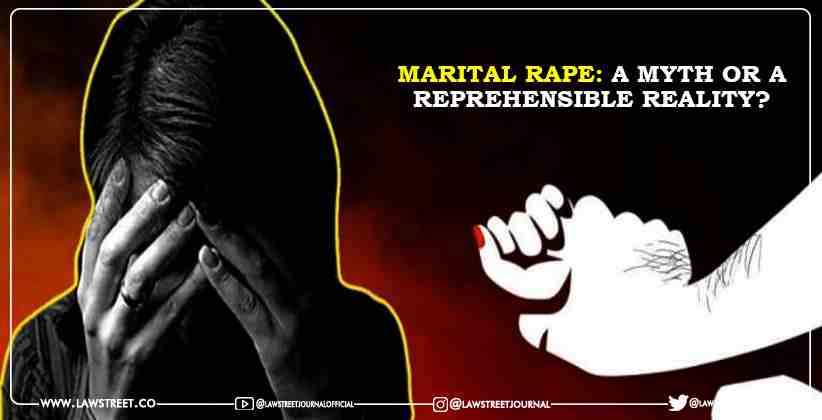
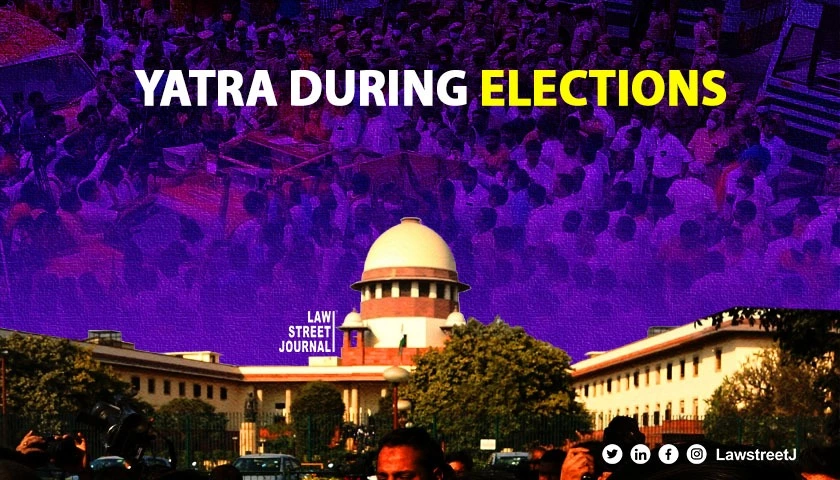

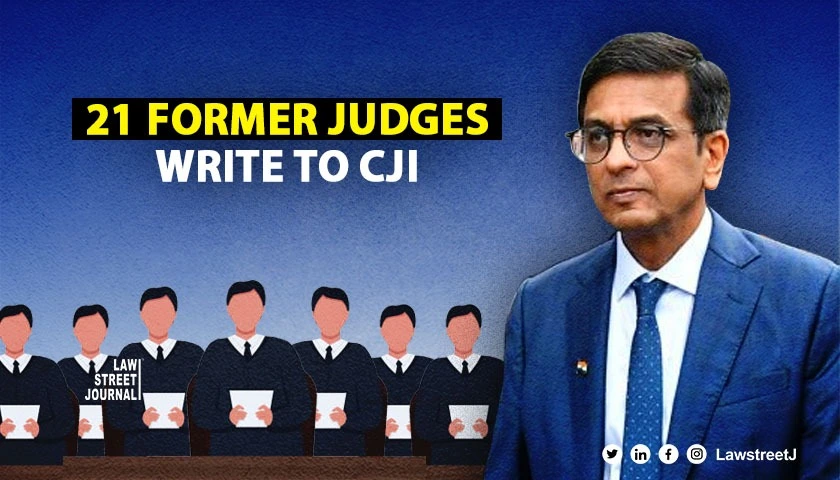
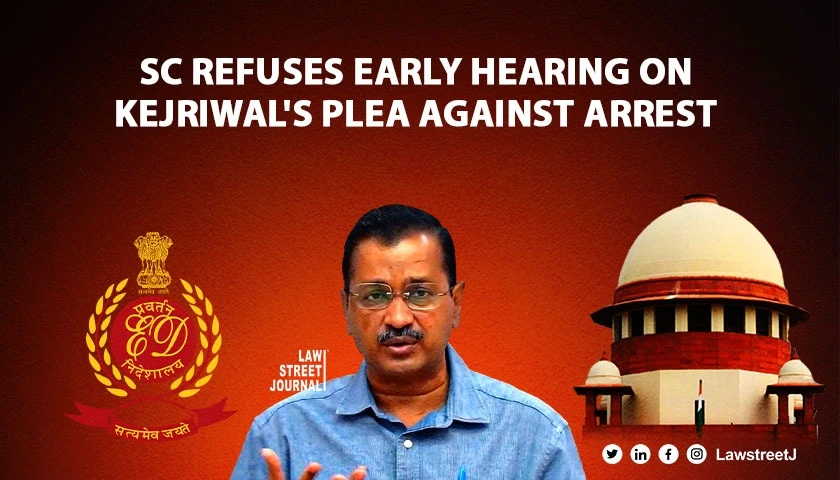
.webp)
